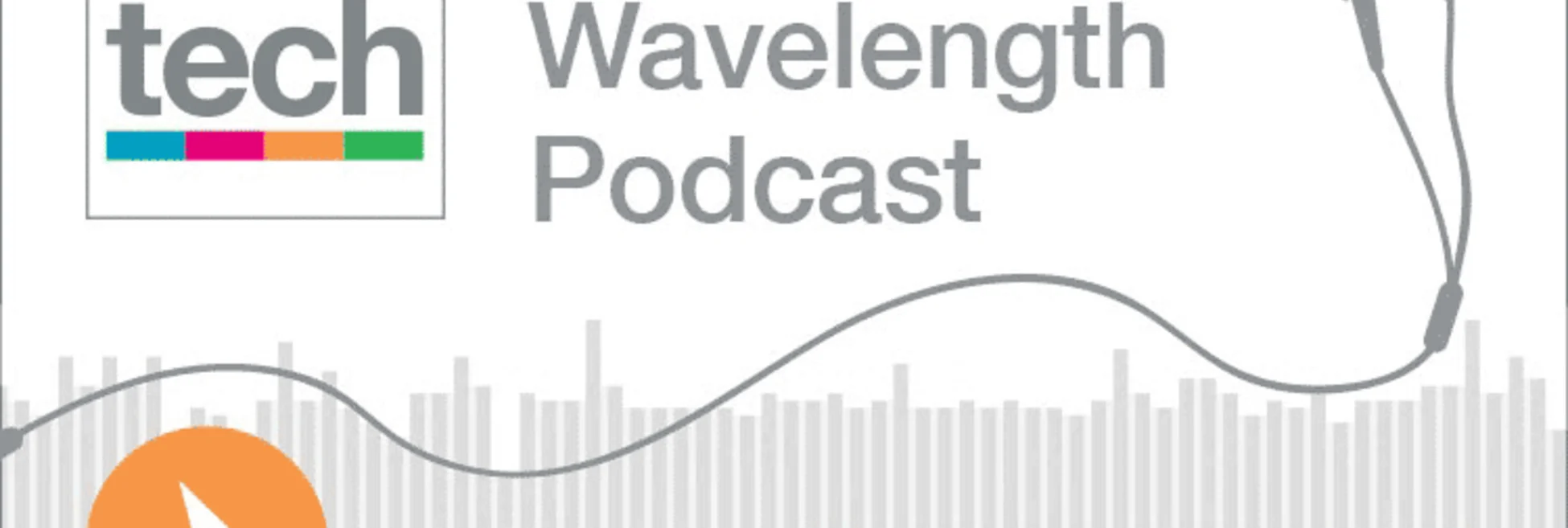
Wavelength Podcast Episode 142: AWS Talks Cloud Adoption in the Capital Markets
Also: Trading Technologies is developing an OMS for the sell side and Orbital Insight is embracing a platform-as-a-service model.
James Rundle, WatersTechnology's US editor, and Anthony Malakian, editor at large for WatersTechnology, record a weekly podcast touching on the biggest stories in financial technology.
To hear the full interview, listen in the player above, or you can download it.
This week, Scott Mullins, worldwide financial services business development lead at Amazon Web Services (AWS), joins the podcast to discuss how capital markets firms are embracing public clouds, how they will look to differentiate themselves as costs come down while capacity increases, and how clouds can help in the evolution of artificial intelligence (AI) tools. But before that, Anthony and James look at how Orbital Insight will deploy a platform-as-a-service (PaaS) model and how Trading Technologies will launch an order management system (OMS) in 2019.
In the News
2:30 As Orbital Insight expands the number of retailers it tracks and adds geolocation data to its offering, it will eventually deploy a PaaS model for do-it-yourself geospatial analytics.
7:30 Trading Technologies has announced the 2019 launch of an OMS designed for sell-side traders.
AWS
14:00 It’s taken some time, but capital markets firms are fully embracing public cloud offerings, most notably with AWS, Microsoft Azure, Google Cloud Platform and IBM Cloud. What’s changed?
17:30 What’s the end state for capacity and cost? As capacity increases and cost decreases, how will cloud providers differentiate themselves?
20:00 NYSE Technologies and Nasdaq FinQloud both tried to create cloud platforms specific to the capital markets, but they never quite took hold. Why weren’t capital markets firms able to create something on their own?
22:30 Where do firms go wrong when creating a cloud strategy?
26:30 How are firms deploying the cloud across the front, middle and back offices?
29:30 Should public cloud providers be labeled as Systemically Important Financial Market Utilities, similar to a clearinghouse?
33:00 How can a cloud environment help in the development of machine learning?
37:30 What’s down the road that might be revolutionary as it pertains to the cloud?
Contact Info
As is the case with everything we do, we'd love to get some feedback from our listeners. Feel free to reach out to Anthony or James via Twitter or email.
Anthony Malakian, editor at large: @a_malakian; anthony.malakian@infopro-digital.com
James Rundle, US editor: @JimRundle; james.rundle@infopro-digital.com
Past 10 episodes:
Episode 132: Thasos Group’s CEO Talks Alternative Data
Episode 133: IBM on Quantum Computing
Episode 135: The Most Important Technologies of the Future
Episode 136: Blockchain Projects & Some Politics
Episode 137: Bloomberg on Data Fragmentation
Episode 138: Nasdaq-Cinnober Tie-up & 10 Years After Lehman's Collapse
Episode 139: Broadridge on Emerging Tech in APAC
Further reading
Only users who have a paid subscription or are part of a corporate subscription are able to print or copy content.
To access these options, along with all other subscription benefits, please contact info@waterstechnology.com or view our subscription options here: http://subscriptions.waterstechnology.com/subscribe
You are currently unable to print this content. Please contact info@waterstechnology.com to find out more.
You are currently unable to copy this content. Please contact info@waterstechnology.com to find out more.
Copyright Infopro Digital Limited. All rights reserved.
As outlined in our terms and conditions, https://www.infopro-digital.com/terms-and-conditions/subscriptions/ (point 2.4), printing is limited to a single copy.
If you would like to purchase additional rights please email info@waterstechnology.com
Copyright Infopro Digital Limited. All rights reserved.
You may share this content using our article tools. As outlined in our terms and conditions, https://www.infopro-digital.com/terms-and-conditions/subscriptions/ (clause 2.4), an Authorised User may only make one copy of the materials for their own personal use. You must also comply with the restrictions in clause 2.5.
If you would like to purchase additional rights please email info@waterstechnology.com
More on Emerging Technologies
Bank of America reduces, reuses, and recycles tech for markets division
Voice of the CTO: When it comes to the old build, buy, or borrow debate, Ashok Krishnan and his team are increasingly leaning into repurposing tech that is tried and true.
Waters Wavelength Ep. 313: FIS Global’s Jon Hodges
This week, Jon Hodges, head of trading and asset services for Apac at FIS Global, joins the podcast to talk about how firms in Asia-Pacific approach AI and data.
Project Condor: Inside the data exercise expanding Man Group’s universe
Voice of the CTO: The investment management firm is strategically restructuring its data and trading architecture.
BNP Paribas explores GenAI for securities services business
The bank recently released a new web app for its client portal to modernize its tech stack.
Bank of America and AI, exchanges feud with researchers, a potential EU tax on US tech, and more
The Waters Cooler: Broadridge settles repos in real time, Market Structure Partners strikes back at European exchanges, and a scandal unfolds in Boston in this week’s news roundup.
Bloomberg rolls out GenAI-powered Document Insights
The data giant’s newest generative AI tool allows analysts to query documents using a natural-language interface.
Tape bids, algorithmic trading, tariffs fallout and more
The Waters Cooler: Bloomberg integrates events data, SimCorp and TSImagine help out asset managers, and Big xyt makes good on its consolidated tape bid in this week’s news roundup.
DeepSeek success spurs banks to consider do-it-yourself AI
Chinese LLM resets price tag for in-house systems—and could also nudge banks towards open-source models.







